Justice and Peace
International Conference in Celebration of the 30th Anniversary of the “88 Declaration” of the NCCK
Last Updated (Tuesday, 10 April 2018 15:14)
With the theme “Cultivating Peace, Proclaiming Hope”, International Conference in Celebration of the 30th Anniversary of the “88 Declaration” of the NCCK was held in Seoul, South Korea on 5 – 7 March 2018. The objectives of the conference were: 1) to reflect 30 years’ foot-print of the Korean Church’s reunification movement; 2) to articulate theological vision on peaceful reunification of Korea; 3) to develop a middle-to-long term strategy and action plans for peace and reunification in Korea; 4) to strengthen the ties between the Korean Church and ecumenical partner churches/organizations; 5) to renew our commitment to the Pilgrimage of Justice and Peace (PJP) initiated by the WCC, and 6) to articulate a theological vision and hope for peace-making on the national, regional and global level.
There were about 130 participants from different church denominations and ecumenical organizations – over 40 overseas participants and over 80 domestic participants. Mr. Nam Boo-Won, GS of APAY, was invited as part of ecumenical partners that are committed to peace-building in the Korean Peninsula and Northeast Asia. The conference program was comprised of opening worship; intergenerational talk on people’s stories living in a divided nation including the story of Dr. David Suh who had been the chief editor of the 88 Declaration three decades ago; keynote addresses from NCCK and WCC; panel presentations and group discussions; and closing worship. At the end of the conference, participants unanimously adopted a Communique of the Conference as follows:
ICF National Forum in Nepal Organizes Human Rights Workshop
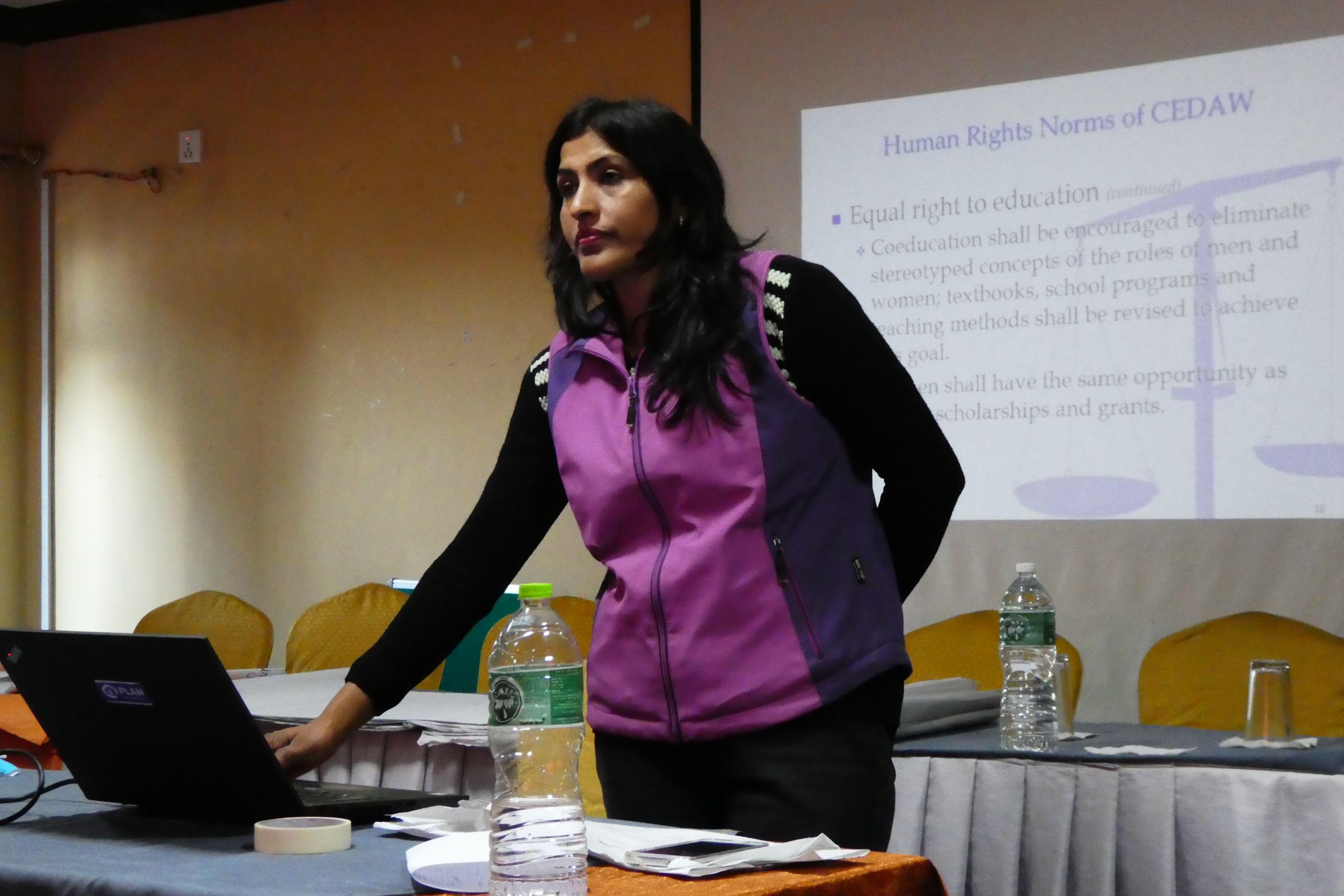 The national forum members of Interfaith Cooperation Forum (ICF) in Nepal organized a five-day human rights workshop from Dec. 15 to 19 in Pokhara. The 17 participants consisted of School of Peace (SOP) alumni and others that the national forum invited. Many of the participants work at the grassroots level and thus had numerous experiences and incidents to share with each other about human rights conditions in the country. Among the issues the group identified were bonded labor, human trafficking, child marriages and various types of discrimination based on caste, class, gender and religion. The participants explained that some of the causes behind these problems were political instability, corruption, poverty and patriarchy. This exchange of views had been preceded by an introduction to what are human rights and an outline of its historical development.
The national forum members of Interfaith Cooperation Forum (ICF) in Nepal organized a five-day human rights workshop from Dec. 15 to 19 in Pokhara. The 17 participants consisted of School of Peace (SOP) alumni and others that the national forum invited. Many of the participants work at the grassroots level and thus had numerous experiences and incidents to share with each other about human rights conditions in the country. Among the issues the group identified were bonded labor, human trafficking, child marriages and various types of discrimination based on caste, class, gender and religion. The participants explained that some of the causes behind these problems were political instability, corruption, poverty and patriarchy. This exchange of views had been preceded by an introduction to what are human rights and an outline of its historical development.
Based on this understanding of human rights and the country’s human rights challenges, discussions then focused on human rights from a legal perspective with presentations about the U.N. human rights system and a number of U.N. human rights covenants and conventions related to torture, the rights of women and children and civil and political rights as well as economic, social and cultural rights.
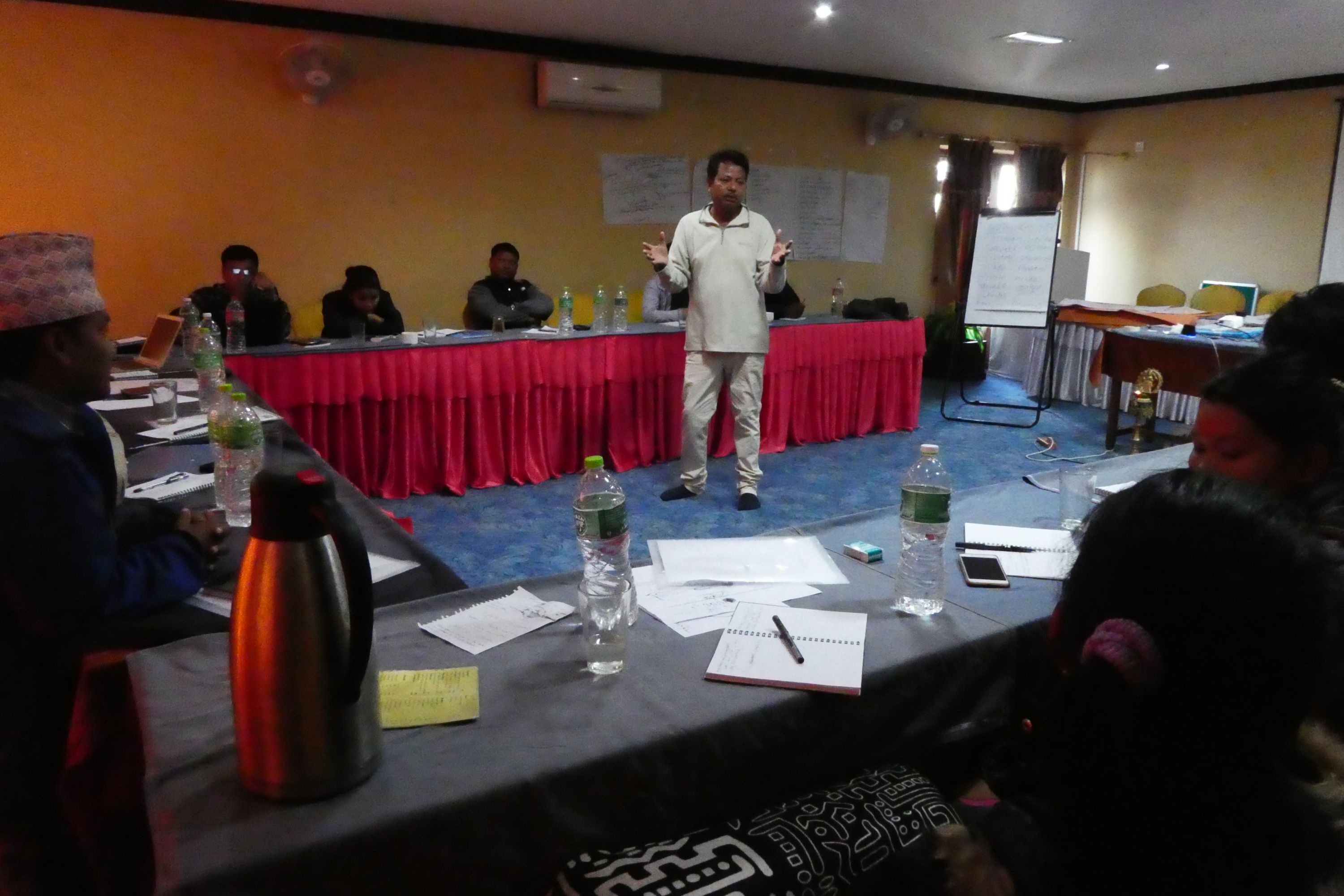
Human rights was also examined from a moral perspective based on the teachings and values of Asia’s faiths, and the participants shared their ideas about why there is so much violence in the name of religion in the region if the values of Asia’s faiths—love, kindness and compassion, justice, peace, etc.—form the foundation of human rights norms and standards.
Other meaningful discussions were held about the link between corruption and human rights, the way in which some cultural practices deny people’s rights and various obstacles to respect for human rights.
The workshop concluded with presentations about how to respond to human rights violations, including community organizing, and a sharing of thoughts about how to foster a deeper human rights culture and nurture a stronger human rights movement in Nepal.
Read more: ICF National Forum in Nepal Organizes Human Rights Workshop
7th China-Japan-Korea YMCA Peace Forum
(This article is based from the Youth’s Common Declaration on the 7th China-Japan-Korea YMCA Peace Forum and written on behalf of all the youth participants.)
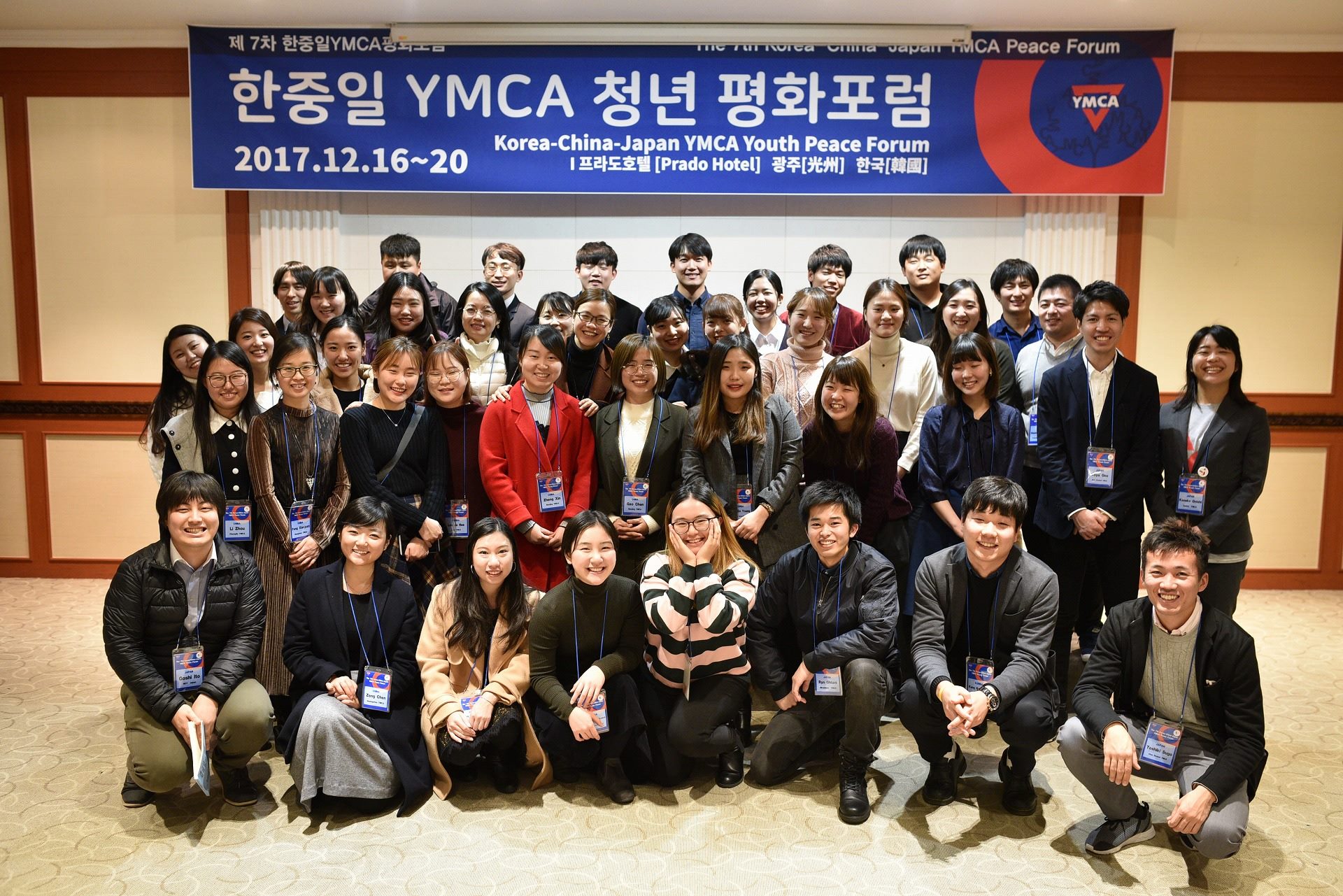 The 7th China-Japan-Korea YMCA Peace Forum was held on 16-20 December 2017 in Gwang Ju, Korea- a city which is a symbol of Korean democracy movement and where many youth sacrificed for making a better society. The youth from the three countries shared their vision on creating a society of justice and peace. Through this peace forum, the youth shared the non-peaceful situations and reached an understanding on their common peace issues, based on which the joint tasks could be carried out.
The 7th China-Japan-Korea YMCA Peace Forum was held on 16-20 December 2017 in Gwang Ju, Korea- a city which is a symbol of Korean democracy movement and where many youth sacrificed for making a better society. The youth from the three countries shared their vision on creating a society of justice and peace. Through this peace forum, the youth shared the non-peaceful situations and reached an understanding on their common peace issues, based on which the joint tasks could be carried out.
The situations related to peace issue that poses threats to youth can be categorized into the following. Firstly, the threat to youth’s daily life. The youth in Korea, China and Japan face challenges in terms of youth employment with overly long working time, high cost of living and heavy burden of family. These factors make them lose their presence of mind and vision for future, leaving them with no more alternatives for a better life and no more energy for attending important political and social matters. Secondly, the threat to war in Northeast Asia. Northeast Asia has been in a temporary armistice since the end of Korean War. However, North Korea's recent development of nuclear weapons and missiles has thrown a gloom of war over the region. Also, the THAAD missiles stationed at South Korea created a tension between Korea and China. In addition, the major political party of Japan is trying to change the pacifist Constitution, which pulls the region closer to war.
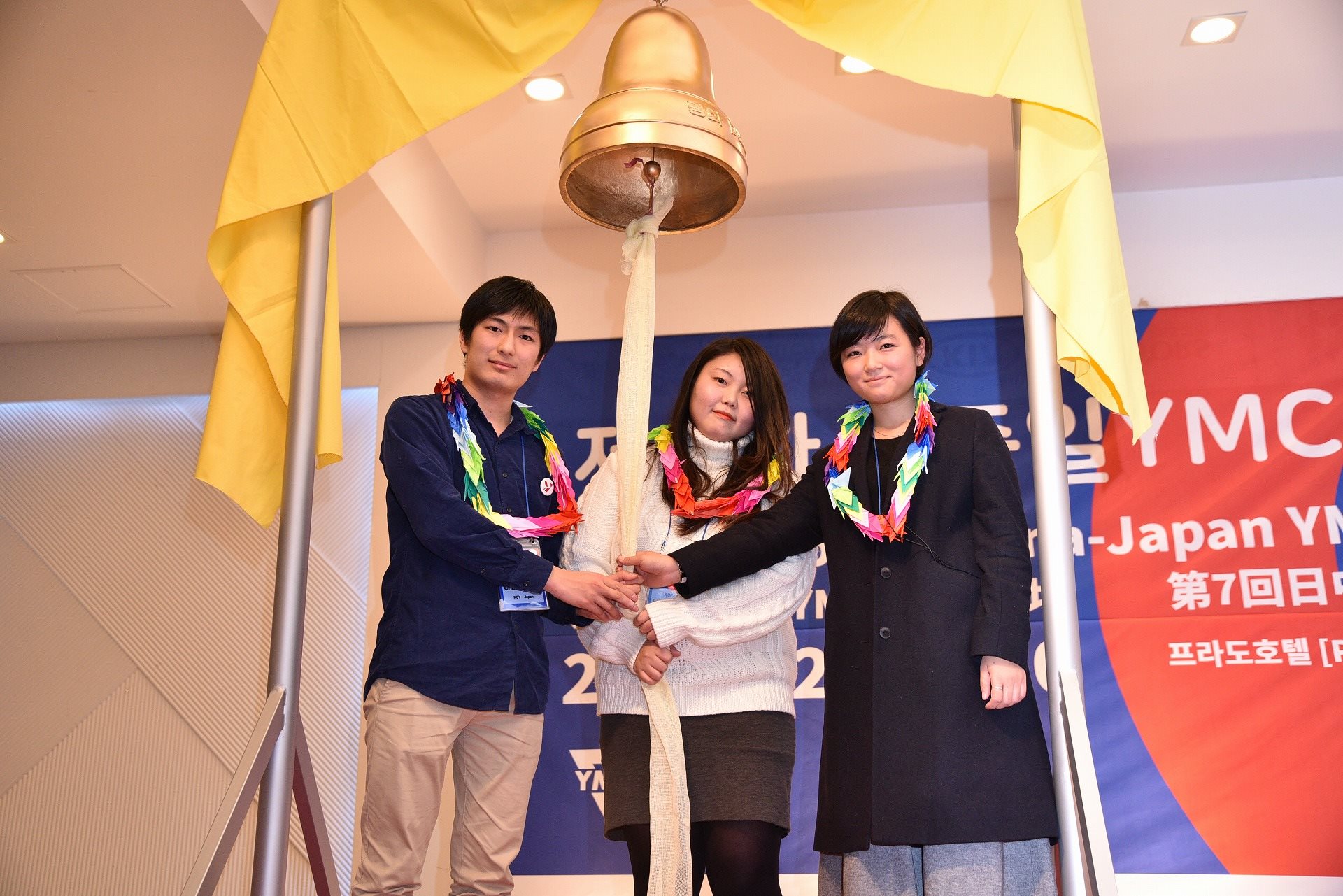 Despite these non-peaceful situations, the youth wants to make a peaceful future for all. The peaceful society that the youth envisions and expects is a society in which youth are able to freely express their opinions and actively exert political influence; a society in which people treat each other fairly without judgments; and a society that is open and friendly to minority groups.
Despite these non-peaceful situations, the youth wants to make a peaceful future for all. The peaceful society that the youth envisions and expects is a society in which youth are able to freely express their opinions and actively exert political influence; a society in which people treat each other fairly without judgments; and a society that is open and friendly to minority groups.
The Korean, Chinese, and Japanese youth proposes and commits to the following joint actions:
ICF Evaluation and Planning Workshop
Last Updated (Friday, 12 May 2017 12:24)
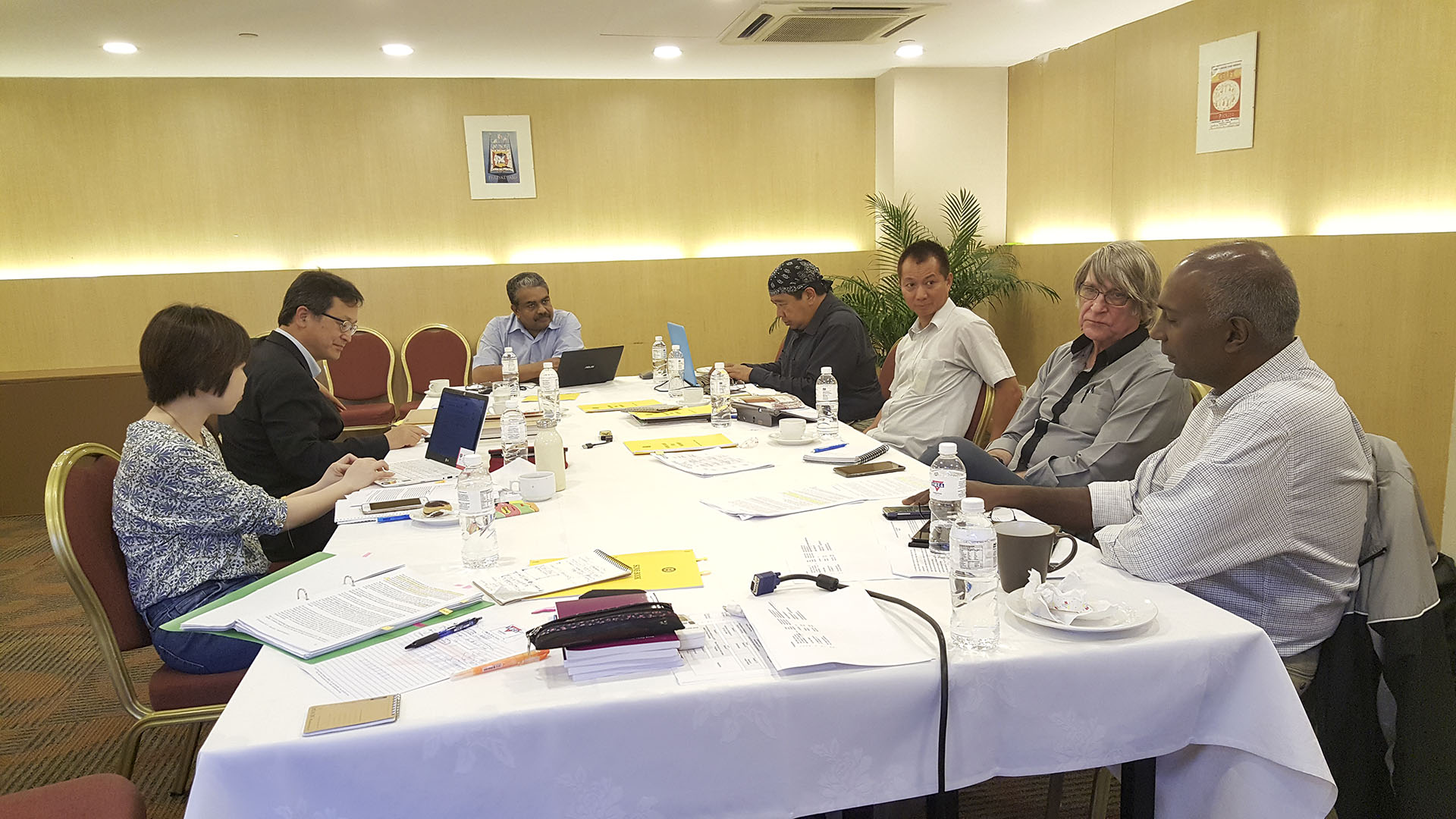 |
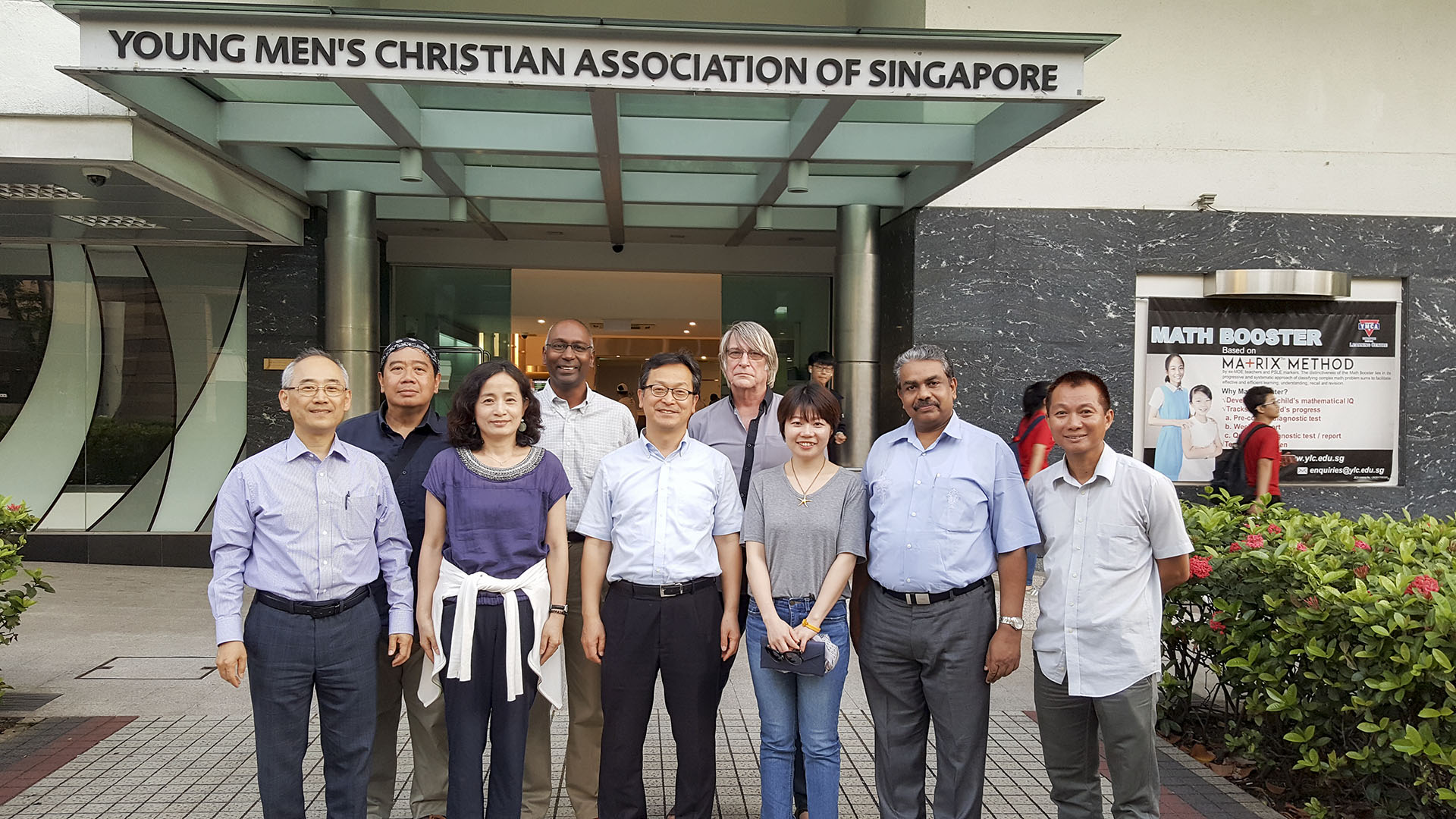 |
ICF Evaluation and Planning Workshop held in YMCA of Singapore
With a view to evaluating ICF activities for the past thirteen years, reviewing the process of transformation of the youths as grassroots initiatives towards peace activism, as well as exploring the possibilities to expand and deepen the scope of the inter-faith peace education programs, an Interfaith-Cooperation Forum (ICF) Evaluation & Planning Workshops held on 19 – 22 April at the YMCA of Singapore. Four Resource Persons – Dr. Jung Ji-seok and Ms. Moon Ayoung from APAY, and Dr. Joshep A. Manickam and Mr. S. Lont Mun from Christian Conference of Asia (CCA) were invited to give fresh ideas and suggestions for the next phase of the project starting from January 2018. Dr. Mathews George, General Secretary, Dr. Reynaldo R. Ty, Executive Secretary from CCA and Mr. Nam Boo Won, General Secretary of APAY, were also present, together with Mr. Max Ediger, ICF Coordinator. Both Dr. George and Mr. Nam facilitated the workshop.
Participants spent three days together to evaluate the achievement so far as well as discuss and reflect on the future direction and thrust of ICF. An overview of ICF up to date was presented by Nam, followed by discussions centered on the evaluation of the project from various perspectives. A self-evaluative reflection on School of Peace was presented by Max, ICF Coordinator, followed by questions and answers by the participants. Thereafter, further focused discussions took place to draw a strategic direction and core components of the next phase of ICF with a view to reaching an originally set objective of “creating an inter-religious regional justpeace movement” in Asia. In this, diverse inputs and program suggestions were given from the resource persons. This led to a collective brainstorming for next phase program development taking into consideration the continuation of the current programs.
A new proposal, based on the outcome of the workshop, will be drafted by Mr. Duncan Chowdhurry, Executive Secretary for Programs, APAY and circulated to all the participants for their final inputs before finalization. At this juncture, we are particularly grateful to Max Ediger for his long and steadfast devotion to ICF work for the past 14 years. And we hope and pray that ICF will continue to serve meaningfully and relevantly in building peace with justice in Asia, particularly in the communities where inter-religious tension and conflict arise. APAY is specially thankful to YMCA of Singapore for their generous offer of the hotel facilities and hosting a dinner for the participants.
GATN Networking on Responsible and Sustainable Tourism
Last Updated (Tuesday, 11 October 2016 14:23)
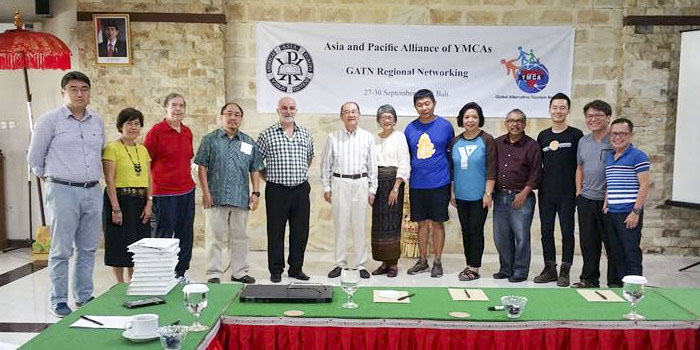
27-30 September 2016, Bali, Indonesia
After a long and challenging negotiation process at the UNFCCC, the COP21 ended positively with the Paris Agreement. Hundreds of cities, regions, companies and organisations have proven their strong commitment to phase out fossil energies by mid-century. With the long term mitigation goal, a mechanism to dynamically scale up each country’s action over time, a set of common transparency rules and a support package for the vulnerable, all necessary instruments are on board to move forward. COP 21 has been a milestone in the human story to tackle climate change and gives us hope for a climate friendly, resilient and more equitable future.
Paris agreement was an ambitious one. In general, we can consider it a success; however, there was one serious shortcoming. The Paris Agreement did not make any explicit reference to emissions from international aviation and shipping that are each responsible for 5% of Global Warming. Under current policy and projections, assuming that the world’s total carbon emissions fall by enough to prevent more than 2℃ of warming, by 2050 shipping and aviation could contribute 40% of our CO2 output. Failure to control these sectors will jeopardise the fulfillment of the Paris “well below 2℃” ambition.
The United Nations World Tourism Organisation reported that the number of international tourist arrivals grew by 4.4% in 2015 to reach a total of 1.184 billion in 2015. Asia and the Pacific recorded around 5% growth in 2015, receiving 277 million international arrivals. According to the Pacific Asia Travel Association (PATA) Visitor Arrivals Forecasts for the period 2015 to 2019, international visitor arrivals to Asia Pacific destinations will continue their growth momentum over the next five years. Preliminary estimates indicate that the rate of growth over that period will average between five and six percent per annum to generate an aggregate inbound count of more than 670 million by the end of 2019.
Read more: GATN Networking on Responsible and Sustainable Tourism
Read more...
Page 8 of 9





